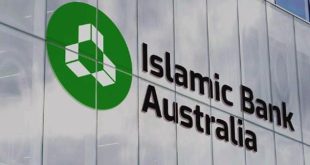 The evolution and development of Information Systems (IS) in the banking sector can be traced back to the 1800s, from the introduction of the telegraphic system in the US. Today, sophisticated systems and state of the art technology are widely used in the banking sector, and multi-channel banking makes it much easier and less rushed for us all. The emerging and niche Islamic finance market has to stay highly technology driven in order to maintain a competitive edge over others and deliver fast and quality customer service within Shariah parameters.
The evolution and development of Information Systems (IS) in the banking sector can be traced back to the 1800s, from the introduction of the telegraphic system in the US. Today, sophisticated systems and state of the art technology are widely used in the banking sector, and multi-channel banking makes it much easier and less rushed for us all. The emerging and niche Islamic finance market has to stay highly technology driven in order to maintain a competitive edge over others and deliver fast and quality customer service within Shariah parameters.
There are more than 300 Islamic Financial Institutions (IFIs) globally managing more than US$1 trillion, a figure expected to reach US$4 trillion by 2012. Industry experts maintain that the industry is growing at a rate of 10% to 15% per annum across borders even in non- Muslims countries.
IFIs must create a robust IT platform of solutions to deliver technology driven innovative products and services to their clientele. There are more than 35 global and regional vendors that offer Islamic Banking System (IBS) services for Islamic banks & IFIs. Efforts to computerize the IT system in accordance with Shariah tend to be developed in-house in the initial stages, directly under the supervision of Shariah scholars and Islamic banking experts.
Alternatively, global vendors can build a competitive edge by getting their software endorsed by independent Islamic finance institutions namely Accounting and Auditing Organization for Islamic Financial Institutions (AAOIFI) and such. Islamic banking IT solutions can be resolved either by implementing a new system or installing only the relevant functional system or modules from existing core banking systems.
This system implementation is a pivotal transition which comes with some major risks. To date, a number of banks have gone through this transition since there is no complete ‘off the shelf’ product. It will not be an easy task to implement the system successfully without an excellent project management process, and without a team inclusive of technical experts, Shariah scholars and banking specialists, consultants and such.
Constant growth in the number of IFIs and Islamic banks require that IT systems are in place to compete with both new entrants and existing market players, whether conventional or Islamic. Advanced technology will reduce cost significantly, as well as manual workload, inefficiencies, transaction processing time and so on while enhancing customer satisfaction with sophisticated facilities.
This Shariah-compliant system involves an out-of-the-box implementation which disturbs the existing IT system by requiring various customizations to the traditional core banking solution. Sometimes this layer sits on top of this Islamic finance functional application layer or else integration will not support other applications. Hence there may be a need for another middleware. Flexibility, timing and affordability become a question mark at this point.
The acquisition of ready-made, plug and play modern components can be integrated smoothly either by interfacing directly to the core banking software (or through an establishment of middleware). Today, Information System Strategy is at the heart of the banking sector and it will determine the success of the business.
The IT team especially cannot enjoy the liberty of implementing IT systems like in conventional banks. In IBS each and every matter has to go through a Shariah Supervisory Board (SSB) to obtain the necessary approvals. Furthermore, Islamic banking systems require more information disclosure. This transition or system implementation in an Islamic bank will easily consume a minimum of six months and above depending on the complexity of the implementation project.
Core issues
Conventional core banking software have been developed based on interest which is fixed and defined calculation methods. Once the formula is fixed the interest rates will be credited into the relevant accounts as per the command.
But in the case of IFIs and IBs, the profit is unknown until the maturity date of the business contract / investment made. In addition, the sharing of profit can vary according to Mudarib — Rab al Mal sharing percentages, types of accounts, tenor period, risk ratios, utilization percentages and profit equalization ratios. This may vary in different jurisdictions and between banks too.
Since profit distribution is one of the main differences between Islamic banks and conventional banks, profit distribution methodology should be thoroughly tested from Shariah to Accounting. IFIs require much matured profit distribution system, despite the increase in the number of global core banking system vendors incorporating the Islamic banking support to their product offerings.
From a technical point of view, Islamic banking IT solutions and software must be flexible, user friendly, accessible, scalable, compatible (able to run in different platforms and operating systems), highly secure with preventive features and have automated implementation with modern and reliable database technology.
With the latest developments in technology, Islamic banking software should be able to swiftly migrate or adapt to the advanced technology as and when necessary while constantly taking into consideration global best practices and processes. The system can be developed and installed as a browser platform / web based system or MS platform / desktop platform with advance programming languages. Even now the interest has been shifting to open source system for implementation.
Many software systems for the banks were developed with heavy development costs, after a number of years of research and development with equal amounts of testing. The Islamic finance industry is seeing everyday a new IFI. New start-up institutions will find it difficult to afford this strategic investment at the initial stages in order to build a robust IT platform with rich functionality.
On the other hand, the Islamic finance industry requires trained professionals with in-depth knowledge about Islamic finance and field expertise in this emerging sector in order to provide quality, uninterrupted service to clients.
Another important area to focus on is IBS training to bank staff, as well as translating the Islamic banking concepts, workflows and consequences to the technical experts so that they can develop and strategically fit a system to the IBs business strategy requirements.
Finally, customizations of conventional banking software have been overshadowed by the demand from IBs for IT platforms to develop their own competitive edge over others. Many software systems were developed for conventional banks. When Islamic banks request for a software system, conventional ones are generally customized to suit some of the IB’s needs. Many are either customized to suit the IB’s requirements, or come with worked solutions to expel in-built conventional parameters, including terminology and such. With just one core banking software available in the market for Islamic banking that is in line with the AAOIFI and IFSB regulations and that complies with international and Islamic regulations, the Islamic finance industry is projected to adopt competent banking systems satisfying its distinctive needs and requirements.
‘This article was first published in IFN Volume 7 Issue 19 dated the 12th May 2010’
http://www.sheikhmubarak.com/ib_articles/A_Glimpse_into_Islamic_Banking_Software_Systems.pdf.
Post Disclaimer | Support Us
Support Us
The sailanmuslim.com web site entirely supported by individual donors and well wishers. If you regularly visit this site and wish to show your appreciation, or if you wish to see further development of sailanmuslim.com, please donate us
IMPORTANT : All content hosted on sailanmuslim.com is solely for non-commercial purposes and with the permission of original copyright holders. Any other use of the hosted content, such as for financial gain, requires express approval from the copyright owners.
 Sri lanka Muslims Web Portal Sri Lanka Muslims News Center
Sri lanka Muslims Web Portal Sri Lanka Muslims News Center
 Donate
Donate



You have done a very good post for new entrants in to the market of Islamic finance. Jazak Allahu khaira.